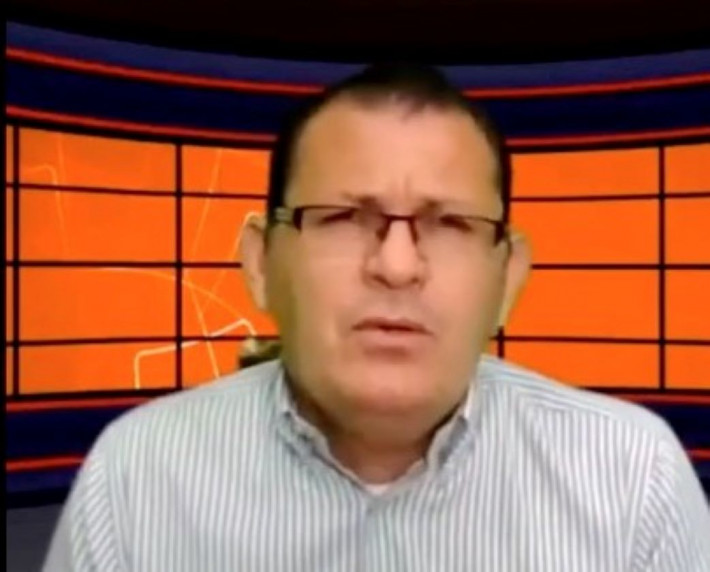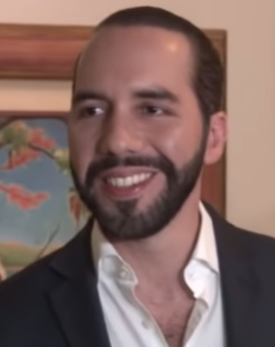Honduran Mayors Explain Their Successful Appeal to Neighboring El Salvador for Vaccines
Honduran Mayors Explain Their Successful Appeal to Neighboring El Salvador for Vaccines
May 27, 2021 (EIRNS) – A group of seven Honduran mayors from the poorest municipalities of that most impoverished of nations, recently requested of the President of neighboring El Salvador, Nayib Bukele, that he help them with anti-COVID vaccines. Bukele has made a point of obtaining at least some vaccines internationally, including from China, with whose government El Salvador signed a Memorandum of Understanding for the Belt and Road Initiative in 2018. Honduras, on the other hand, remains one of the few nations in the world that has diplomatic relations with Taiwan, and not with China, and has predictably not gotten any vaccines from the United States either.
President Bukele responded favorably to the request, met with the Honduran mayors, and donated 34,000 vaccines to their municipalities in mid-May. This was especially significant because El Salvador and Honduras have a long history of hostility, with territorial disputes, and even fought a short but bloody war in 1969, today known as the “Soccer War.” Bukele’s gesture in fact falls in the domain of the kind of solutions to problems proposed by the Committee for the Coincidence of Opposites. The Schiller Institute’s José Vega interviewed two of the seven mayors about the situation in Honduras and their successful appeal to Salvadoran President Bukele. We present here excerpts from a May 16 conversation with Amable de Jesús Hernández, Mayor of San José Colinas, and a May 24 discussion with David Castro, mayor of Cedros. (A video of the interview with Mayor de Jesús can be found here.)
Mayor Amable de Jesús Hernández:
“I think that only with solidarity, with humanitarian actions, with exchanges and mutual cooperation among countries, peoples, neighbors, families, institutions, among all of us, will we be able to defeat this pandemic. There’s no other way to be able to do it. This has overwhelmed human capabilities, it has exceeded the capabilities of even the most formidable health systems of the world, and it has collapsed them.
“The only way to deal with this is with solidarity. And I think that’s what Salvadoran president Nayib Bukele has done with us, from the poor, C-category municipalities of Honduras. Because it was an act of humanity, of solidarity, of brotherhood, of altruism and comradery, which doubtless strengthens the relationship of our peoples, and it promotes solidarity. There’s no question that this has to be an example for other countries to do the same, to share vaccines, which is what is needed right away to be able to vaccinate the population and defeat this pandemic. It’s the only way…
“Because governments should have an agenda which allows for the development of the people. And as you said, all of the policies of the International Monetary Fund are out to make sure there are no investments in health: the more collapsed the health system in the country is, the better.
“And that’s exactly what the pandemic has laid bare: the humanitarian catastrophe that is reflected in the hundreds of children, men, women, elderly and adults who leave, every single day, on route to the American dream. This is caused precisely by this same model that has been imposed on us.
“So many conditionalities have been imposed on our states, that they’ve pretty much wanted to direct the entire policy of these governments from Washington, or from the offices of the IMF. And logically that has led to the entire institutional collapse that has now sunk those countries in the worst misery…
“We have to globalize solidarity; we have to globalize humanism; we have to globalize brotherhood. This gesture with us by President Bukele created what has to be seen as a gesture to be imitated by many governments in the world, so that we can come out on top of the pandemic.”
Mayor David Castro:
“The vaccine situation has infuriated all of the municipal governments… We’re watching how people have been dying in our municipalities, and we couldn’t bear to sit by and do nothing. We saw the reports that El Salvador is leading the vaccination drive in Latin America. One day I was in my office, and I told my secretary, let’s write an official letter to send it to El Salvador to request a meeting with President Bukele. The government of El Salvador answered us: `We’re going to help you.’
Mayor Castro recounted that the seven mayors were received by President Bukele. “He began by saying the following: Dear mayors, make yourselves at home. I’m not speaking with you as President, but as a mayor, since I was a mayor as well. I’d like to talk as friends… I don’t know why borders exist; borders should be imaginary, but they should never exist in our hearts.”
Mayor Castro told President Bukele that what he was doing was helping to save Honduras, to which Bukele responded: “Look, David, sometimes we plant trees and we don’t know who is going to enjoy their shade. Today we are planting a tree, which is the tree of brotherhood in Central America and hopefully tomorrow that tree will provide shade to all five countries of Central America.”
Asked by the interviewer if his constituents backed his efforts, Castro stated: “Not only my constituents. The entire nation turned out to support us. The whole country. Not just the seven municipalities, but all 290 municipalities… they backed us 100%.”
“The population of Cedros is 28,500; they gave us 4,760 doses. My dream is to vaccinate 50% of the population; that’s about another 14,000 doses. That would be a lesson for all the municipalities, that it can be done…
“Regarding the youth: like El Salvador, we have the problem of the Maras gang, which is a well-known scourge… There are also a lot of migrants who go from our country to the U.S. If we were to help those people directly in their communities, they wouldn’t have to emigrate.”











